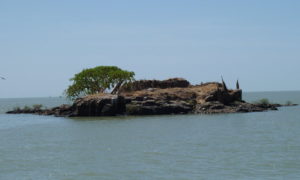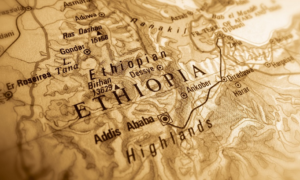Source MoFA July 2015
Prime Minister Hailemariam addresses the House of Representatives Prime Minister Hailemariam Desalegn responded to questions from members of the House of Representatives on the budget on Monday this week. The Prime Minister also briefed MPs on other current issues and addressed questions raised by members of parliament on matters of national and regional concern, including the election, human trafficking and relations with Eritrea.
The Prime Minister elaborated on the draft budget for 2008 E.C (2015-2016). With the budget as a record 223.3 billion Birr (around US$11billion), he said the budget deficit was less than three percent. He said the Government does not expect any major increase in inflation as a result of the deficit and emphasized that it would not print money to fill the gap. The draft budget allocates 22.6% to recurrent expenses, 37.4% to capital expenses, 34.7% for subsidies to the regional states and 5.4% to achieve sustainable development goals.
Addressing questions about the rising costs of the newly transferred condominiums, he said there has been a gradual rise in the price of houses since the building program commenced more than a decade ago. This year’s transfers had also registered price rises. This had been mainly due to increasing labor and construction costs, but, he said, the increases had not been extraordinary or exceptional. He pointed out the Government was subsidizing the program to the extent of some 7.5 billon Birr. This amounted to half of the total cost of the houses transferred to people this year.
The Prime Minister said that concerted efforts were underway to address the problem of public transportation in Addis Ababa and he underlined the need to coordinate activities between stakeholders and the implementation of a system of proper inspection to help resolve the existing problems in the city. He said the Government had provided favorable conditions for the private sector to import some 500 buses duty free and these would be on the streets to provide an effective city bus service shortly. The Addis Ababa City Light Rail Project had fallen behind schedule because there has been a problem with the purchase of the 450 kw power supply cables. This has now been resolved and the railway should be operational soon.
The Prime Minister described the sole owner and winner of the recent election had been the Ethiopian people. The fact that 96% of registered voters’ had turned out to cast their votes was an extraordinary result by any standards. He said “we aren’t concerned with what others say: it is the people of Ethiopia who endorse the election.” He said the landslide victory of the Ethiopian Peoples’ Revolutionary Democratic Front was not a coincidence; rather it showed that people appreciated that the peace and development that the country was enjoying today was the fruit of EPRDF policies. It also demonstrated the increasing ability of the public to discern between the alternatives on offer – peace and order as opposed to the possibility of anarchy; principled, and successful, policies rather than distorted ambition; success rather than a lack of possibilities. These were all reasons why the people voted for the EPRDF rather than the opposition.
The Prime Minister also underlined the Government encouragement for the Ethiopian Diaspora to take an active role in development activities in the country. He said their participation was increasing appreciably but there was still a lot of untapped potential. He pointed out that the Government is holding consultations with the Diaspora to enrich the Second Growth and Transformation Plan which is now in the process of being finalized.
The Prime Minister detailed what the Government is doing to curb human trafficking and said it was working closely with Interpol and with neighboring countries to tackle this scourge and to dismantle trafficking networks in the region. They would also be expanding their efforts elsewhere. He stressed that as human trafficking is a crosscutting issue, it was essential that dealing with it required the concerted effort of parents, religious leaders and the community at large.
The Prime Minister also spoke of foreign policy, underlining that peace, development and mutual respect for its neighbors were the firm and unwavering bases of Ethiopia’s foreign policy. He said the Government was working tirelessly to strengthen links with neighbors through economic integration. As a result it has excellent relations with Kenya, with Djibouti, and with the Sudan. There was one exception to this. Relations with Eritrea had shown no improvement despite Ethiopia’s repeated efforts to open a dialogue. Eritrea had continued its destructive and destabilizing role in Ethiopia and the region. So far, the Prime Minister said, Ethiopia had countered Eritrea’s subversive activities with a measured response. He stressed, however, that if the regime in Asmara continued to engage in its destabilizing behavior, the Government might be forced to take appropriate action as required. ******************






